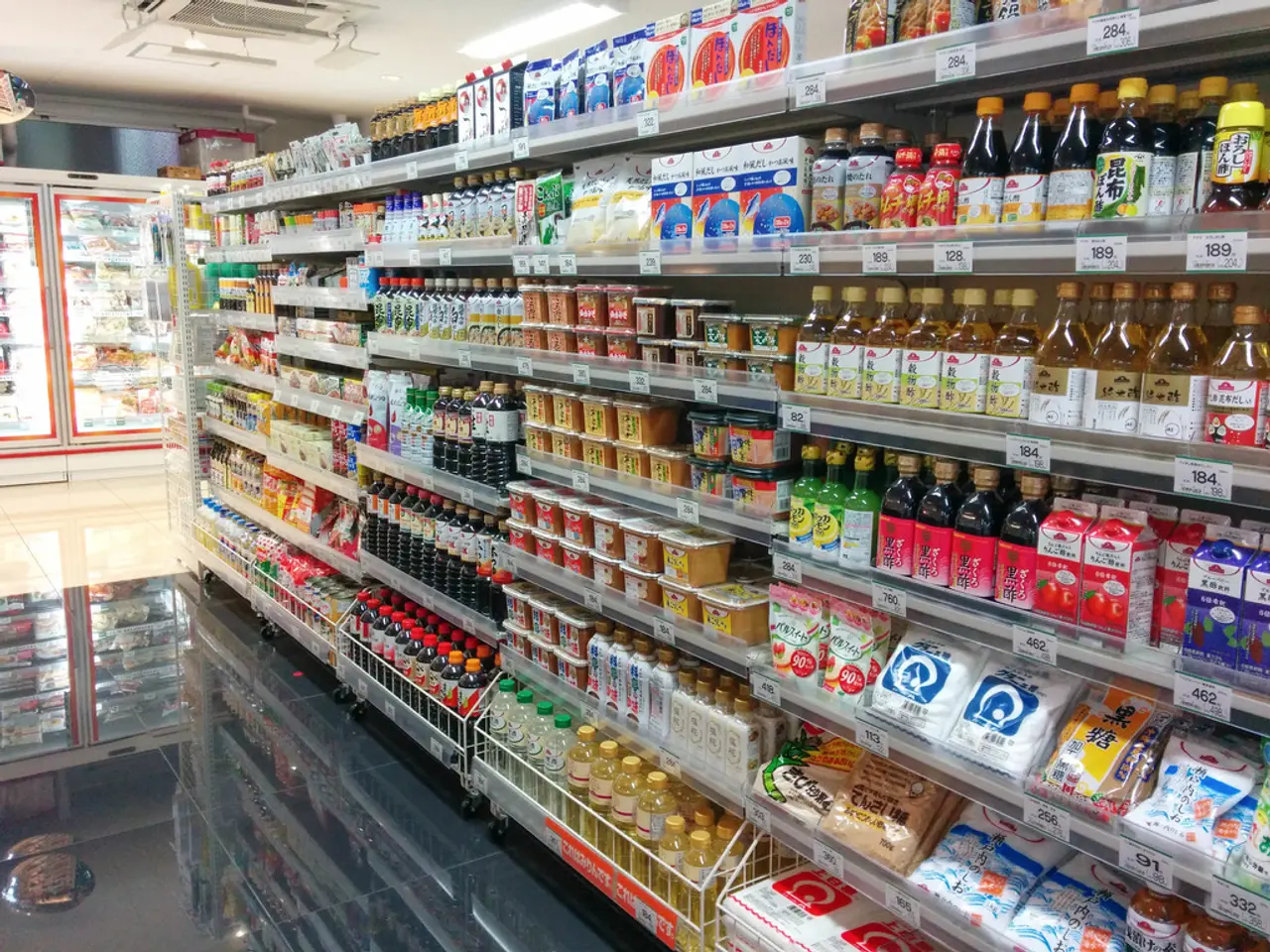Russia's local retail stores struggling against online marketplaces
In recent months, the stationery market in Russia has experienced a significant shift, with sales of popular items such as pens and notebooks decreasing year-on-year. This trend is evident across the country, with the number of stationery stores also taking a hit.
According to data, sales of the most popular item in the segment, pens, decreased by 2.8% year-on-year, while sales of notebooks dropped by 5.8% and 8.4% respectively. The total number of stationery stores in the country has decreased by 5%, leaving 11,760 retail outlets by May 2025. This decline is particularly noticeable in major cities, with St. Petersburg seeing an 8% decrease to 313 stores, and significant closures occurring in Omsk (down 26%), Rostov-on-Don (down 24%), and Nizhny Novgorod (down 20%).
The reasons behind this decline can be attributed to several interconnected factors. Economic challenges and sanctions have strained the economy, reducing consumer purchasing power and increasing costs for retail businesses, including stationery stores. Furthermore, the rise of online shopping and digital tools has led to reduced demand for traditional stationery, impacting offline stores. Supply chain disruptions due to military conflict and geopolitical tensions have also affected the availability and pricing of goods such as stationery.
The shift to e-commerce is particularly evident in the sales figures for marketplaces. Sales on these platforms in May 2025 were 68.9% higher than in the same period in 2024. The advantage of marketplaces lies in the free delivery for buyers, which is covered by the commission. However, this practice can potentially reduce taxable revenues, as noted by the Association of Office Supplies Market (AOSM).
Regarding the impact on sales, it is reasonable to infer that offline sales have likely declined due to fewer physical stores and reduced foot traffic amid economic uncertainty. On the other hand, online sales have possibly increased as consumers shift toward e-commerce for convenience and availability.
Looking ahead, Boris Katz, the head of the board of directors of the network of specialized hypermarkets "Leonardo", predicts that the number of stationery stores may decrease by another third in the next few years. This prediction underscores the importance of adapting to the changing retail landscape and embracing e-commerce as a viable solution for stationery businesses.
As of mid-May 2025, there are more than 2,400 specialized stores in million-plus cities, which is 20% of their total number in the country. This distribution suggests a concentration of stationery stores in larger cities, which may be more susceptible to economic downturns and shifts in consumer behaviour.
In conclusion, the decline in stationery stores in Russian cities can be attributed to a combination of economic challenges, the rise of e-commerce, and supply chain disruptions. As the situation evolves, it will be essential to monitor these trends and consider the implications for the future of the stationery retail sector in Russia.
The decline in stationery sales and store numbers is also reflected in other sectors. Industry experts forecast that the finance and business sectors will experience similar trends, with decreased demand for traditional office supplies due to the shift towards digital tools and work-from-home practices.
Consequently, online marketplaces may see an increase in sales of office supplies, as buyers prefer the convenience of free delivery and a wide product range offered by these platforms. This could potentially impact the revenue of traditional brick-and-mortar office supply stores, further intensifying the struggle in the industry.




